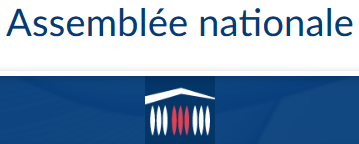Document type : Parliamentary Bill nº 4831 registered in the French Assemblée Nationale
Authors: Julien Aubert, Damien Aba, Philippe Benassaya, Claude de Ganay, Brigitte Kuster, Geneviève Lévy, Bernard Perrut, Alain Ramadier, Bernard Reynès, Nathalie Serre, Laurence Trastour-Isnart, Stéphane Viry
Preview: This bill aims [...] to create a code of animal welfare, which should support the protection of animals, without however suggesting that there is no distinction between species. From a symbolic point of view, removing animals from the civil code and giving them their own code should send a strong signal to society in the fight against animal abuse. While taking animals to be sentient beings, it also establishes the principle of a distinction between the human person and the animal. Taking an international example, we can note that Wallonia has created its own animal welfare code.
This bill proposes a major symbolic advance by providing that no one can arrogate to him/her/themself/selves ownership of an animal. In order to allow the continuation of economic activities related to animals or the possibility of having a pet, this bill provides that a legal or natural person may only have the usufruct of an animal. This would in turn confer duties on the natural or legal person with regard to the animals of which he/she/they has/have the usufruct.
For clarification, this bill also sets out a new categorisation for animals, devised in consultation with members of the Institute for Research in Semiochemistry and Applied Ethology (IRSEA). It accordingly creates three legal categories based on the nature of an animal's relationship with humans: the animal-individual (similar to the current category of companion animals and characterised in particular by an emotional relationship with a human); the animal of an associated species (animals that contribute to an economic activity); and the animal of nature (the rest of the animal kingdom).
This categorisation makes it possible, in particular, to establish different certificates of competence and training to be able to keep a particular type of animal in captivity. It also clarifies the responsibilities of each person with regard to animals, depending on the category to which the latter belong.
This bill also innovates by addressing the fate of assistance animals, whether they are used by people with disabilities or by the police, gendarmerie, military forces or fire brigades in the course of their duties. The bill creates an insurance system to ensure the survival of these animals once their service to society has ended.
Article 1 of the bill accordingly sets out a code of animal welfare, based on various existing provisions in French law. These are included and adapted in the new code, removed from their original context. This is the case, for example, with those sections of the Rural and Maritime Fishing Code that relate to the protection of animals. Other provisions have been devised to meet the intentions of this bill.
Article 2 specifies that usufruct may be established over an animal.
Article 3 deletes various provisions that are recodified in the proposed Animal Welfare Code in the Annex.
Article 4 aligns the wording with the articles in the Penal Code that relate to the penalties for acts, whether public or not, of inflicting abuse that is serious or of a sexual nature, of cruelty towards, or of killing an animal.
Last, Article 5 specifies the date of entry into force of these provisions.






